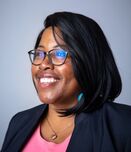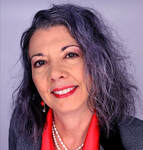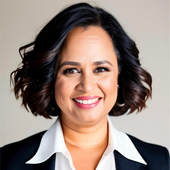
Kris Bertoglio is an instructional specialist serving Manhattan high schools with a passion for school improvement research. He leverages two decades of experience in NYC Public Schools to champion STEM curricula and professional learning. He is defending his dissertation the week before AERA.
Load Reduction Leadership: A Novel School Improvement Framework Based on Cognitive Load Theory, Early Findings
(Poster session: School Climate and Novel Leadership and Learning Frameworks)
Thursday, April 11, 9:00 to 10:30am, Pennsylvania Convention Center, Floor: Second Floor, Exhibit Hall A
This paper includes findings and a novel framework from the author’s dissertation, discussing future pathways and implications for this line of research. Load reduction leadership extrapolates cognitive load theory to the conditions school leaders create for teaching staff. For a selection of extreme cases, the framework was able to differentiate longitudinal improvement patterns based on school practices captured in historic public documents. Interviews with exceptional school principals further supported the framework. If these preliminary results are replicated in future studies, load reduction leadership could significantly advance Division A’s goals. Applying principles of cognitive load theory to improve teacher learning and performance would produce better learning outcomes for all students. The framework provides concrete recommendations and mechanisms to run school operations more efficiently and reduce the frequency of adults acting on implicit biases. Collaborators and thought partners are welcome.
Load Reduction Leadership: A Novel School Improvement Framework Based on Cognitive Load Theory, Early Findings
(Poster session: School Climate and Novel Leadership and Learning Frameworks)
Thursday, April 11, 9:00 to 10:30am, Pennsylvania Convention Center, Floor: Second Floor, Exhibit Hall A
This paper includes findings and a novel framework from the author’s dissertation, discussing future pathways and implications for this line of research. Load reduction leadership extrapolates cognitive load theory to the conditions school leaders create for teaching staff. For a selection of extreme cases, the framework was able to differentiate longitudinal improvement patterns based on school practices captured in historic public documents. Interviews with exceptional school principals further supported the framework. If these preliminary results are replicated in future studies, load reduction leadership could significantly advance Division A’s goals. Applying principles of cognitive load theory to improve teacher learning and performance would produce better learning outcomes for all students. The framework provides concrete recommendations and mechanisms to run school operations more efficiently and reduce the frequency of adults acting on implicit biases. Collaborators and thought partners are welcome.

Ayse Gurdal (Twitter: @aysenurrgurdal) is currently a graduate assistant, pursuing her Ph.D. at William and Mary School of Education, specializing in K-12 Leadership.
Community Cultural Wealth Capitals of First-Generation Ph.D. Students
Thursday, April 11, 2:30 pm
The study holds significant implications for a comprehensive understanding of the experiences of first-generation doctoral students and how their experiences interact and shape the trajectory of their academic journeys with narrative inquiry. The study underscores the importance of an asset-based perspective when working with marginalized groups, such as first-generation college students. Rather than focusing solely on identifying deficits or disparities, this approach emphasizes recognizing and leveraging the strengths and assets within these communities. Therefore, the research fosters aspirational conversations that empower underrepresented individuals to thrive and contribute positively to their educational environments. Moreover, the study's emphasis on an asset-based framework has broader implications for educational institutions and leadership practices. The research also sheds light on the foundational principles of educational leadership and organizational dynamics within K-12 educational institutions. It underscores how leadership approaches can profoundly impact the administration of educational spaces which shape the academic career of the students.
Community Cultural Wealth Capitals of First-Generation Ph.D. Students
Thursday, April 11, 2:30 pm
The study holds significant implications for a comprehensive understanding of the experiences of first-generation doctoral students and how their experiences interact and shape the trajectory of their academic journeys with narrative inquiry. The study underscores the importance of an asset-based perspective when working with marginalized groups, such as first-generation college students. Rather than focusing solely on identifying deficits or disparities, this approach emphasizes recognizing and leveraging the strengths and assets within these communities. Therefore, the research fosters aspirational conversations that empower underrepresented individuals to thrive and contribute positively to their educational environments. Moreover, the study's emphasis on an asset-based framework has broader implications for educational institutions and leadership practices. The research also sheds light on the foundational principles of educational leadership and organizational dynamics within K-12 educational institutions. It underscores how leadership approaches can profoundly impact the administration of educational spaces which shape the academic career of the students.

Tom Alexander Jr., Ed.D., D.Min (@alexandt8), is an Assistant Principal at Rippon Middle School, Prince William County Public Schools. His research interest is asset-based approaches to minority student achievement.
The phenomenon of academic success: The Black male adolescent experience
Friday, April 12, 7:45 to 9:15 am, Pennsylvania Convention Center, Floor: Second Floor, Exhibit Hall A
This study examined the complex issue of Black adolescent achievement, race, and racism within schools. Its findings have implications that could aid in influencing Black students' academic success in school while dispelling the myth of Black adolescent male achievement. These implications include policy recommendations, district-level, and school-level recommendations. Black teachers and administrators contributed to the sense of belonging for African American males in school while increasing their propensity for success in school. Therefore, policymakers should consider increasing incentives to recruit Black educators to earn teaching and administrative degrees. For example, policymakers can assist with programs at the school level that encourages Black students to earn degrees in education. These programs should be federally funded and locally distributed.
The phenomenon of academic success: The Black male adolescent experience
Friday, April 12, 7:45 to 9:15 am, Pennsylvania Convention Center, Floor: Second Floor, Exhibit Hall A
This study examined the complex issue of Black adolescent achievement, race, and racism within schools. Its findings have implications that could aid in influencing Black students' academic success in school while dispelling the myth of Black adolescent male achievement. These implications include policy recommendations, district-level, and school-level recommendations. Black teachers and administrators contributed to the sense of belonging for African American males in school while increasing their propensity for success in school. Therefore, policymakers should consider increasing incentives to recruit Black educators to earn teaching and administrative degrees. For example, policymakers can assist with programs at the school level that encourages Black students to earn degrees in education. These programs should be federally funded and locally distributed.

Dr. Devery J. Rodgers (Twitter: @D_Educator; LinkedIn: https://www.linkedin.com/in/dr-devery-rodgers/) is an Assistant Professor of Educational Leadership at California State University, Long Beach.
Coded bias: The impact of an awareness intervention on coders and CS educators
Ethics has become a paramount concern in computer science. These concerns have become more pressing because there are no independent accrediting bodies or boards with oversight over the tech field. Many people incorrectly assume that technology is value-neutral, but algorithmic bias is an example of how technology can perpetuate human prejudice and inaccurate data. Algorithmic bias refers to computer algorithms that systematically discriminate against certain content, individuals, or groups.
Algorithms are coded by humans; all humans have biases, both conscious and unconscious. If an algorithm is applied to a dataset created with a racial, gender, socioeconomic, or other bias, its output will perpetuate the systemic bias shown in datasets used to train it. While there is no present way to control for these biases, a sense of awareness can mitigate harm. This is where the school leader comes in. This study examines a way school leaders might expose their stakeholders to the challenges of algorithmic bias, and offer options for advocacy and activism.
Coded bias: The impact of an awareness intervention on coders and CS educators
Ethics has become a paramount concern in computer science. These concerns have become more pressing because there are no independent accrediting bodies or boards with oversight over the tech field. Many people incorrectly assume that technology is value-neutral, but algorithmic bias is an example of how technology can perpetuate human prejudice and inaccurate data. Algorithmic bias refers to computer algorithms that systematically discriminate against certain content, individuals, or groups.
Algorithms are coded by humans; all humans have biases, both conscious and unconscious. If an algorithm is applied to a dataset created with a racial, gender, socioeconomic, or other bias, its output will perpetuate the systemic bias shown in datasets used to train it. While there is no present way to control for these biases, a sense of awareness can mitigate harm. This is where the school leader comes in. This study examines a way school leaders might expose their stakeholders to the challenges of algorithmic bias, and offer options for advocacy and activism.

Carol A. Mullen, Ph.D. (https://en.wikipedia.org/wiki/Carol_A._Mullen;
https://www.researchgate.net/profile/Carol-Mullen-2) is a professor in the Educational Leadership and Policy Studies Program at Virginia Tech.
The SACE framework for division-wide new teacher mentoring/induction
Friday, April 12, 11:25am
The SACE framework for division-wide new teacher mentoring/ induction: Comprehensive mentoring and induction can counteract teacher attrition. The purpose of this case study was to determine the features of a division-wide, job-embedded mentoring/induction program. Research questions included: How do elementary practitioners involved in formal mentoring describe it? What was the perceived effect of COVID-19 on this program? Interviewed were mentor teachers, principals, and new teachers within three elementary schools in the southern USA. As found, while the program was operating in the crisis, it did not uniformly demonstrate consistency and fidelity. With the uneven quality, equitable support was seen as a need. Equity-embedded SAC was theorized as support, accessibility, collaboration, and equity (SACE), a new framework. It is time for equity to be recognized as a crucial programmatic feature.
Mullen, C. A., & Lowery, C. L. (2024 SPE, April 13). Meditation on a pandemic poem’s educational meanings using literary analysis, Philadelphia
Poets and philosophers who write lyrically can spark ideas about global–local challenges and hope. We are professors of education who contribute to pandemic writing on “lockdown culture.” Pandemic poetry appeared during COVID. Imagining pandemic poetry as a genre born of exigency, we will read an educational poem (Mullen's artwork) and interpret it. Our literary analysis incorporates philosophical musings and pedagogical examples. Dewey’s and Freire’s educational theories helped shape our textual analysis and research collaboration. Creating an opening for ambiguity, empathy, and possibility, we also applied Barone and Eisner’s (1997) Seven Features of Arts-based Educational Research to the poem.
https://www.researchgate.net/profile/Carol-Mullen-2) is a professor in the Educational Leadership and Policy Studies Program at Virginia Tech.
The SACE framework for division-wide new teacher mentoring/induction
Friday, April 12, 11:25am
The SACE framework for division-wide new teacher mentoring/ induction: Comprehensive mentoring and induction can counteract teacher attrition. The purpose of this case study was to determine the features of a division-wide, job-embedded mentoring/induction program. Research questions included: How do elementary practitioners involved in formal mentoring describe it? What was the perceived effect of COVID-19 on this program? Interviewed were mentor teachers, principals, and new teachers within three elementary schools in the southern USA. As found, while the program was operating in the crisis, it did not uniformly demonstrate consistency and fidelity. With the uneven quality, equitable support was seen as a need. Equity-embedded SAC was theorized as support, accessibility, collaboration, and equity (SACE), a new framework. It is time for equity to be recognized as a crucial programmatic feature.
Mullen, C. A., & Lowery, C. L. (2024 SPE, April 13). Meditation on a pandemic poem’s educational meanings using literary analysis, Philadelphia
Poets and philosophers who write lyrically can spark ideas about global–local challenges and hope. We are professors of education who contribute to pandemic writing on “lockdown culture.” Pandemic poetry appeared during COVID. Imagining pandemic poetry as a genre born of exigency, we will read an educational poem (Mullen's artwork) and interpret it. Our literary analysis incorporates philosophical musings and pedagogical examples. Dewey’s and Freire’s educational theories helped shape our textual analysis and research collaboration. Creating an opening for ambiguity, empathy, and possibility, we also applied Barone and Eisner’s (1997) Seven Features of Arts-based Educational Research to the poem.

Dr. Breauna Wall (Instagram: @solutionswithbre) is an esteemed education professional, bringing over a decade of expertise as a leader, practitioner, and devoted mother. Founder of CollaborativeEd Solutions, she champions equitable and collaborative education globally.
Collaborative Approaches to Supporting Students with Learning Disabilities in Online Schools
Friday, April 12, 4:55pm
"Collaborative Approaches to Supporting Students with Learning Disabilities in Online Schools," addresses the critical issue of academic achievement among students with Specific Learning Disabilities (SWSLD) in online schools. A full research paper will be published in the April 2024 issue of the Journal of Online Learning and Research. My study follows a quantitative research design exploring the technological pedagogical knowledge, practices, and preparation of online middle school teachers, particularly in the context of meeting the needs of diverse learners. By conducting a needs assessment across nine public charter schools in a Western coast state, the research uncovers the lack of teacher preparation and ongoing professional development related to teaching SWSLD online. My research paper significantly contributes to the field by uncovering the challenges faced by online teachers in meeting the needs of students with learning disabilities. Its implications for administration, organization, and leadership lie in guiding strategic decisions, shaping professional development initiatives, fostering collaboration, and ultimately working towards the advancement of equity in online education. The findings serve as a call to action for administrators to actively address the identified gaps and create a supportive environment for the diverse needs of online learners.
Collaborative Approaches to Supporting Students with Learning Disabilities in Online Schools
Friday, April 12, 4:55pm
"Collaborative Approaches to Supporting Students with Learning Disabilities in Online Schools," addresses the critical issue of academic achievement among students with Specific Learning Disabilities (SWSLD) in online schools. A full research paper will be published in the April 2024 issue of the Journal of Online Learning and Research. My study follows a quantitative research design exploring the technological pedagogical knowledge, practices, and preparation of online middle school teachers, particularly in the context of meeting the needs of diverse learners. By conducting a needs assessment across nine public charter schools in a Western coast state, the research uncovers the lack of teacher preparation and ongoing professional development related to teaching SWSLD online. My research paper significantly contributes to the field by uncovering the challenges faced by online teachers in meeting the needs of students with learning disabilities. Its implications for administration, organization, and leadership lie in guiding strategic decisions, shaping professional development initiatives, fostering collaboration, and ultimately working towards the advancement of equity in online education. The findings serve as a call to action for administrators to actively address the identified gaps and create a supportive environment for the diverse needs of online learners.

Dayna Muniz (@dbmuniz.bsky.social) is a doctoral student in the Educational Leadership program at Temple University’s College of Education and Human Development. She is a graduate student representative for UCEA’s Graduate Student Council and is the communications chair for AERA’s Division A Graduate Student Council. Professionally, she serves as the Associate Director of the Coalition for Educational Equity at the University of Pennsylvania’s Graduate School of Education.
Working Toward Equity in Suburban School Districts
Saturday, April 13, 7:45 to 9:15am, Philadelphia Marriott Downtown, Floor: Level 4, Room 409
This symposium focuses on suburban school districts and their approaches to equity work. Despite their reputations for excellence, suburban schools remain deeply unequal. In this session, presenters will discuss multiple papers that analyze how these districts respond to this inequality through equity initiatives. One paper looks at how three suburban school districts conceptualize equity, and the constraints on equity work that occur as a result of this conceptualization. Another paper looks at how one suburban school district’s robust equity plan focuses solely on racial equity, to the exclusion of other dimensions of inequality, like class. The third paper analyzes the current phenomenon of districts hiring equity directors. Altogether, these papers offer an engaging and important look at how suburban school districts respond to inequality through equity initiatives in various ways.
Working Toward Equity in Suburban School Districts
Saturday, April 13, 7:45 to 9:15am, Philadelphia Marriott Downtown, Floor: Level 4, Room 409
This symposium focuses on suburban school districts and their approaches to equity work. Despite their reputations for excellence, suburban schools remain deeply unequal. In this session, presenters will discuss multiple papers that analyze how these districts respond to this inequality through equity initiatives. One paper looks at how three suburban school districts conceptualize equity, and the constraints on equity work that occur as a result of this conceptualization. Another paper looks at how one suburban school district’s robust equity plan focuses solely on racial equity, to the exclusion of other dimensions of inequality, like class. The third paper analyzes the current phenomenon of districts hiring equity directors. Altogether, these papers offer an engaging and important look at how suburban school districts respond to inequality through equity initiatives in various ways.

Dale Willson, Ph.D. (https://www.linkedin.com/in/dale-k-willson-4a1126144/), serves as the Director of Academic Assessment at The New School in New York City.
A Light in the Dark: A Qualitative Meta Synthesis of Pre-Tenure Faculty Mentorship Promising Practices.
Saturday, April 13, 2024, 6:45 to 8:15 pm
This dissertation, which was chosen as the "Dissertation of the Year" by SIG 66 (Mentoring and Mentoring Practices), expands and refines faculty mentoring research through an advanced qualitative methodology (meta synthesis), and can be used by leaders in institutions of higher education to anchor and root their faculty mentorship programs within promising practices identified in academic literature. A key focus of this work are the mentorship experiences of women and faculty of color, and aspects of formal and informal programs that engender personal and professional growth for these populations. Division A members are invited to use this work in their own mentorship programs, and as a starting point for discussions within their local academic communities. I plan on using this work as a springboard for a published book on faculty mentorship practices for institutions of higher education, and would welcome interest from Division A members on potential collaboration.
A Light in the Dark: A Qualitative Meta Synthesis of Pre-Tenure Faculty Mentorship Promising Practices.
Saturday, April 13, 2024, 6:45 to 8:15 pm
This dissertation, which was chosen as the "Dissertation of the Year" by SIG 66 (Mentoring and Mentoring Practices), expands and refines faculty mentoring research through an advanced qualitative methodology (meta synthesis), and can be used by leaders in institutions of higher education to anchor and root their faculty mentorship programs within promising practices identified in academic literature. A key focus of this work are the mentorship experiences of women and faculty of color, and aspects of formal and informal programs that engender personal and professional growth for these populations. Division A members are invited to use this work in their own mentorship programs, and as a starting point for discussions within their local academic communities. I plan on using this work as a springboard for a published book on faculty mentorship practices for institutions of higher education, and would welcome interest from Division A members on potential collaboration.

Rosemary Riccardo (https://www.linkedin.com/in/rosemary-riccardo-660b4b168) is a researcher using statewide longitudinal data to track long-term academic outcomes for Pennsylvania students and inform state policy.
Work-Based Learning in Pennsylvania: Describing Issues of Equity, Geographic Access, and Participation in Career Clusters (Roundtable Session - College and Career Readiness)
Sunday, April 14, 1pm
This session summarizes findings from recently completed reports on work-based learning in Pennsylvania related to equity and access at secondary institutions. Broader implications for the field of career and technical education will be discussed.
Work-Based Learning in Pennsylvania: Describing Issues of Equity, Geographic Access, and Participation in Career Clusters (Roundtable Session - College and Career Readiness)
Sunday, April 14, 1pm
This session summarizes findings from recently completed reports on work-based learning in Pennsylvania related to equity and access at secondary institutions. Broader implications for the field of career and technical education will be discussed.

Suskya Goodall is a doctoral candidate at Victoria University of Wellington with a research focus on actively enhancing collective wellbeing in educational institutions of Aotearoa New Zealand. Suskya currently co-leads Educational Leadership and Wellbeing Education SIGs affiliated with the New Zealand Association for Research in Education.
Holistic wellbeing promotion as a catalyst for organisational change and growth
Sunday, April 14, 2:15 pm http://tinyurl.com/ypm474a9
Shining a light on the wellbeing of educators in Aotearoa New Zealand, this paper shares findings from an exploratory study delving into the wellbeing of teachers and leaders in a range of educational settings. The study seeks to address the research juxtaposition of education, psychology and indigenous worldviews. The results inspire theoretical, practical and organizational implications for educators, leaders and educational organisations.This presentation is part of an international symposium: International Perspectives on Cultivating Justice and Hope through Wellbeing Promotion in Educational Settings. Our team seeks to advance research in the field of educational organization, leadership, and communities with the intent of improving the capacity of the profession to enhance ourselves and the public good.
Holistic wellbeing promotion as a catalyst for organisational change and growth
Sunday, April 14, 2:15 pm http://tinyurl.com/ypm474a9
Shining a light on the wellbeing of educators in Aotearoa New Zealand, this paper shares findings from an exploratory study delving into the wellbeing of teachers and leaders in a range of educational settings. The study seeks to address the research juxtaposition of education, psychology and indigenous worldviews. The results inspire theoretical, practical and organizational implications for educators, leaders and educational organisations.This presentation is part of an international symposium: International Perspectives on Cultivating Justice and Hope through Wellbeing Promotion in Educational Settings. Our team seeks to advance research in the field of educational organization, leadership, and communities with the intent of improving the capacity of the profession to enhance ourselves and the public good.

Armen Álvarez, Ph.D., MDY (LinkedIn: armenalvarez), currently holds the position of Instructional Assistant Professor at Illinois State University, specializing in Developmental Math within the University College.
This is a group presentation. I co-authored this book chapter with Dr. Mariela Rodriguez. We are presenting on Sunday, April 14 at 9 am about the book chapter, "Supervision of Guerrilla Pedagogy" in Culturally Responsive Instructional Supervision: Leadership for Equitable and Emancipatory Outcomes.
Guerrilla Pedagogy serves as a counteraction to the Eurocentric educational philosophy that has, throughout history, sustained racial, economic, historical, sociopolitical, and intellectual divisions. This philosophy has entrenched dominant knowledge systems, frequently sidelining alternative perspectives. In light of this, we contend that the supervision of teachers, administrators, and schools requires a transformative approach.
This is a group presentation. I co-authored this book chapter with Dr. Mariela Rodriguez. We are presenting on Sunday, April 14 at 9 am about the book chapter, "Supervision of Guerrilla Pedagogy" in Culturally Responsive Instructional Supervision: Leadership for Equitable and Emancipatory Outcomes.
Guerrilla Pedagogy serves as a counteraction to the Eurocentric educational philosophy that has, throughout history, sustained racial, economic, historical, sociopolitical, and intellectual divisions. This philosophy has entrenched dominant knowledge systems, frequently sidelining alternative perspectives. In light of this, we contend that the supervision of teachers, administrators, and schools requires a transformative approach.

Dr. Ibrahim Duyar, Ph.D. (https://www.astate.edu/college/education/departments/center-for-excellence-in-education/faculty-staff/) served as a school principal, director of schools, university professor, and consultant in local, national, and international organizations. Dr. Duyar is currently a tenured full-research professor at the Center for Excellence in Education, Arkansas State University.
Duyar, I., Ozbay, F., & Aljanahi, M. Exploring the Impact of Education on Environmental Sustainability: A Closer Look at the Role of a Highly Educated Workforce
The paper is about the climate change and environmental sustainability. While this study was not tied to educational leadership, it cuts across all disciplines and all scholars as the citizens of world.
Devers, K. K., Duyar, I., & Buchannan, K. Examining the Lived Experiences of Teachers Who Exited the Profession during the COVID-19 Pandemic
Watkins, J., Duyar, I. Examining Influence of Organizational Stressors and Principals’ Authentic Leadership on Teachers’ Psychological Well-being
These two presentations are relevant to poor work conditions in educational organizations and their adverse effects on educator work attitudes and persistence. Roles and responsibilities of educational leaders were discussed in moderating the effects on the relationships between organizational stressors and educators' work attitudes such as well-being and decision to stay in or exit the profession.
Duyar, I., Ozbay, F., & Aljanahi, M. Exploring the Impact of Education on Environmental Sustainability: A Closer Look at the Role of a Highly Educated Workforce
The paper is about the climate change and environmental sustainability. While this study was not tied to educational leadership, it cuts across all disciplines and all scholars as the citizens of world.
Devers, K. K., Duyar, I., & Buchannan, K. Examining the Lived Experiences of Teachers Who Exited the Profession during the COVID-19 Pandemic
Watkins, J., Duyar, I. Examining Influence of Organizational Stressors and Principals’ Authentic Leadership on Teachers’ Psychological Well-being
These two presentations are relevant to poor work conditions in educational organizations and their adverse effects on educator work attitudes and persistence. Roles and responsibilities of educational leaders were discussed in moderating the effects on the relationships between organizational stressors and educators' work attitudes such as well-being and decision to stay in or exit the profession.

Hadley Bachman, Ph.D. (@HadleyBachman), is a Research Administration Management Consultant at The Ohio State University, focusing on grants and professional development.
Karen Stansberry Beard, Ph.D. (http://scholar.google.com/citations?user=Ci0VaDcAAAAJ&hl=en), is an Associate Professor and Chair Liaison of Educational Administration and an Educational Policy affiliate.
Family Engagement Efficacy Beliefs of Educators: Validating the Interpretation and Use of a New Scale
Sunday, April 14, 11:25am to 12:55pm
This study addresses a research gap by investigating educators' family engagement efficacy beliefs, crucial for effective school-family collaboration. Grounded in social cognitive theory, the Family Engagement Efficacy Beliefs of Educators (FEEB-E) scale was developed and the interpretation and uses of its scores were validated, revealing a robust factor structure with high internal consistency (α = .917) and good fit. Results of exploratory and confirmatory factor analyses support a five-factor model aligned with NAFSCE's Family Engagement Core Competencies (2022). The FEEB-E provides a comprehensive tool to assess efficacy beliefs in family engagement. Positive correlations emerged between family engagement efficacy, general teaching efficacy, and teachers' trust in families. This study enhances understanding of educators' efficacy beliefs in collaboration with families.
Karen Stansberry Beard, Ph.D. (http://scholar.google.com/citations?user=Ci0VaDcAAAAJ&hl=en), is an Associate Professor and Chair Liaison of Educational Administration and an Educational Policy affiliate.
Family Engagement Efficacy Beliefs of Educators: Validating the Interpretation and Use of a New Scale
Sunday, April 14, 11:25am to 12:55pm
This study addresses a research gap by investigating educators' family engagement efficacy beliefs, crucial for effective school-family collaboration. Grounded in social cognitive theory, the Family Engagement Efficacy Beliefs of Educators (FEEB-E) scale was developed and the interpretation and uses of its scores were validated, revealing a robust factor structure with high internal consistency (α = .917) and good fit. Results of exploratory and confirmatory factor analyses support a five-factor model aligned with NAFSCE's Family Engagement Core Competencies (2022). The FEEB-E provides a comprehensive tool to assess efficacy beliefs in family engagement. Positive correlations emerged between family engagement efficacy, general teaching efficacy, and teachers' trust in families. This study enhances understanding of educators' efficacy beliefs in collaboration with families.

Rong Zhang (Twitter: RongZhang36) is a doctoral student at the University of Alabama, where she has been actively involved as a Graduate Research and Teaching Assistant in the Educational Leadership program.
How to Lead Schools to Success: A Qualitative Meta-Analysis
Sunday, April 14, 1:15 to 2:45pm
Deeply rooted inequity persists within the education system (Skrla et al., 2004). Understanding the nature and impact of school leaders’ work (Leithwood & Day, 2007) and studying successful leadership practices in diverse contexts and cultures are crucial to guide school leaders to help students from different backgrounds to succeed. This study transcended country boundaries by analyzing successful school leadership practices across seventeen countries. Through detailed, systematic, and analytical synthesis, it critically examined successful principalship research produced by the ISSPP over the past 20 years. By systematically reviewing studies on successful leadership, this study identified successful principalship practices that are context-free and context-specific.
How to Lead Schools to Success: A Qualitative Meta-Analysis
Sunday, April 14, 1:15 to 2:45pm
Deeply rooted inequity persists within the education system (Skrla et al., 2004). Understanding the nature and impact of school leaders’ work (Leithwood & Day, 2007) and studying successful leadership practices in diverse contexts and cultures are crucial to guide school leaders to help students from different backgrounds to succeed. This study transcended country boundaries by analyzing successful school leadership practices across seventeen countries. Through detailed, systematic, and analytical synthesis, it critically examined successful principalship research produced by the ISSPP over the past 20 years. By systematically reviewing studies on successful leadership, this study identified successful principalship practices that are context-free and context-specific.

Danqing Yin (@DanqingYin) is a mixed-methods researcher and founder of Sunflower Education Institute, a non-profit organization aiming to cultivate parental agency in helping children thrive.
Rong Zhang (@RongZhang36) is a doctoral student at the University of Alabama.
Dr. Jie Chen has over 15 years of experience in large-scale assessments, research design/methodology, test development, and item analysis.
Unveiling the Vanguard: Analyzing School Characteristics and Aspirations in a Statewide Education Reform in the United States
Our co-authored paper examines the Kansans Can School Redesign Project (Kansans Can) initiated by the Kansas Department of Education (KSDE). Kansans Can aims to enhance student success across various domains. We analyzed data from Model Schools and report cards to investigate how schools aligned with reform goals based on characteristics such as socioeconomic status, racial composition, and location. We captured the differences of school-state goal alignment across phases of the Kansans Can initiative. Our findings, derived from 24 Mercury schools and 44 Gemini I schools, reveal evolving patterns in school-state goal attainment as the initiative progresses. This research contributes to understanding the impact of systematic changes within local contexts, shedding light on critical components of education reform initiatives like Kansans Can.
We are seeking grant to scale the current research methods and analyze the data we have utilized. We are also looking for school leaders and parents to join our team. If interested, please contact Danqing Yin at [email protected].
Rong Zhang (@RongZhang36) is a doctoral student at the University of Alabama.
Dr. Jie Chen has over 15 years of experience in large-scale assessments, research design/methodology, test development, and item analysis.
Unveiling the Vanguard: Analyzing School Characteristics and Aspirations in a Statewide Education Reform in the United States
Our co-authored paper examines the Kansans Can School Redesign Project (Kansans Can) initiated by the Kansas Department of Education (KSDE). Kansans Can aims to enhance student success across various domains. We analyzed data from Model Schools and report cards to investigate how schools aligned with reform goals based on characteristics such as socioeconomic status, racial composition, and location. We captured the differences of school-state goal alignment across phases of the Kansans Can initiative. Our findings, derived from 24 Mercury schools and 44 Gemini I schools, reveal evolving patterns in school-state goal attainment as the initiative progresses. This research contributes to understanding the impact of systematic changes within local contexts, shedding light on critical components of education reform initiatives like Kansans Can.
We are seeking grant to scale the current research methods and analyze the data we have utilized. We are also looking for school leaders and parents to join our team. If interested, please contact Danqing Yin at [email protected].